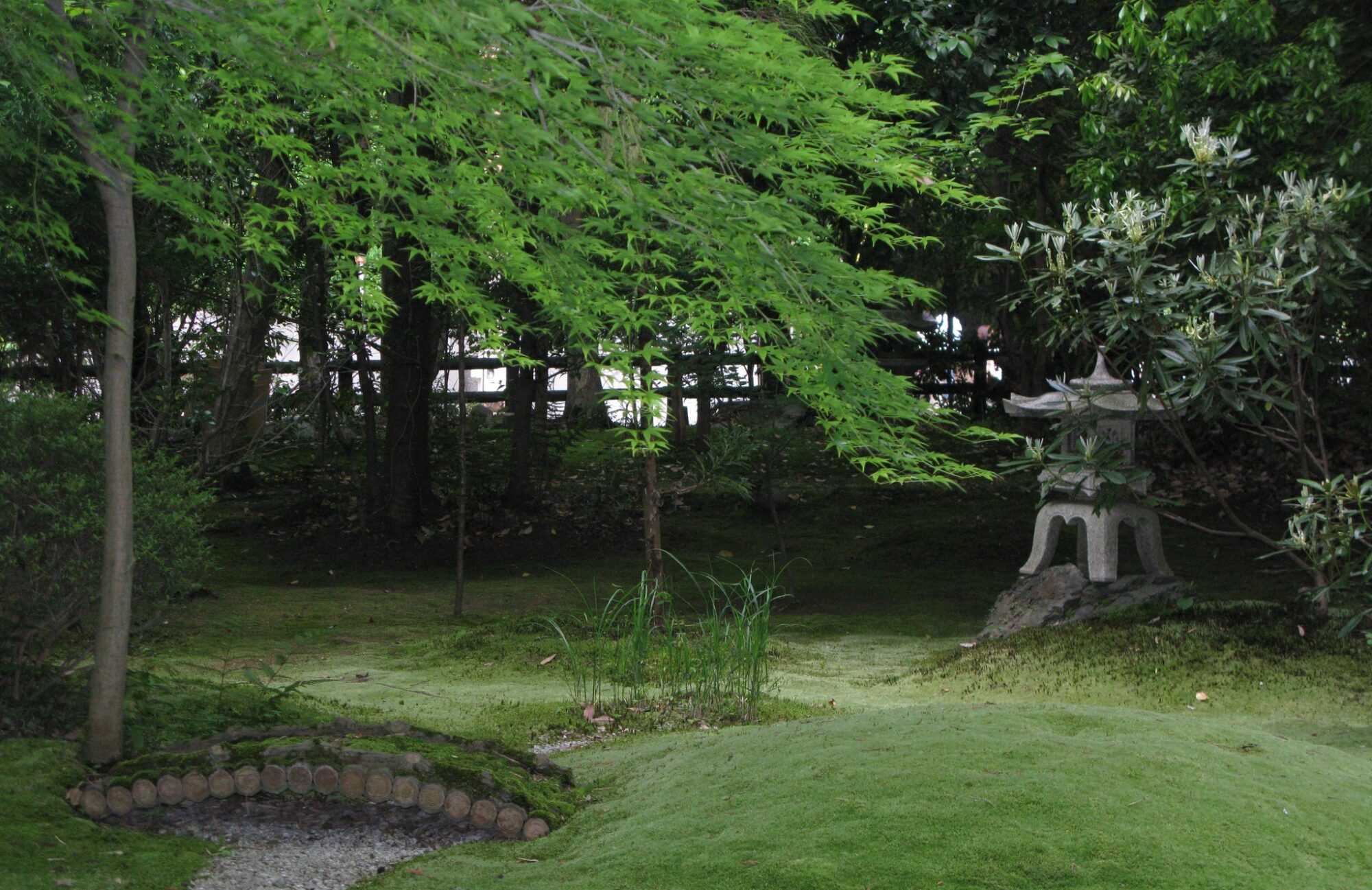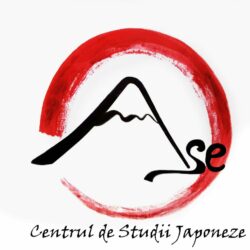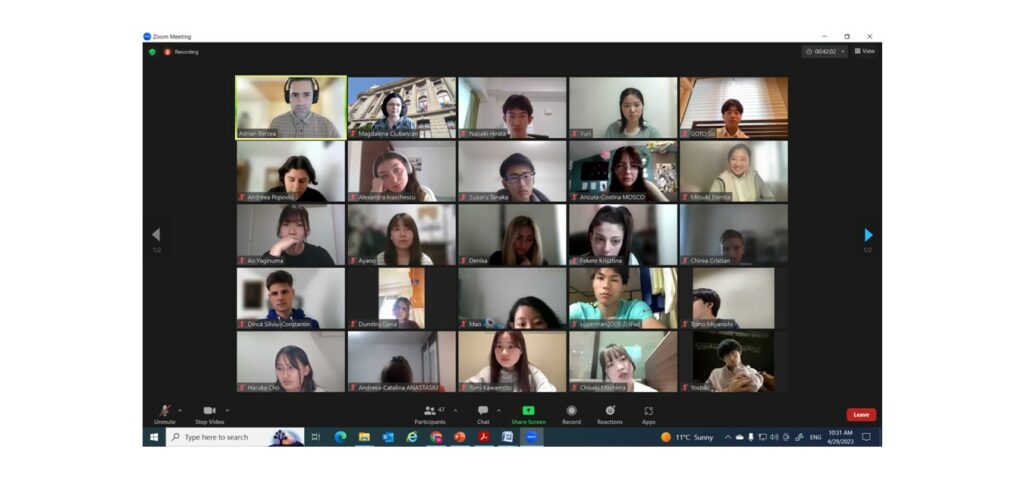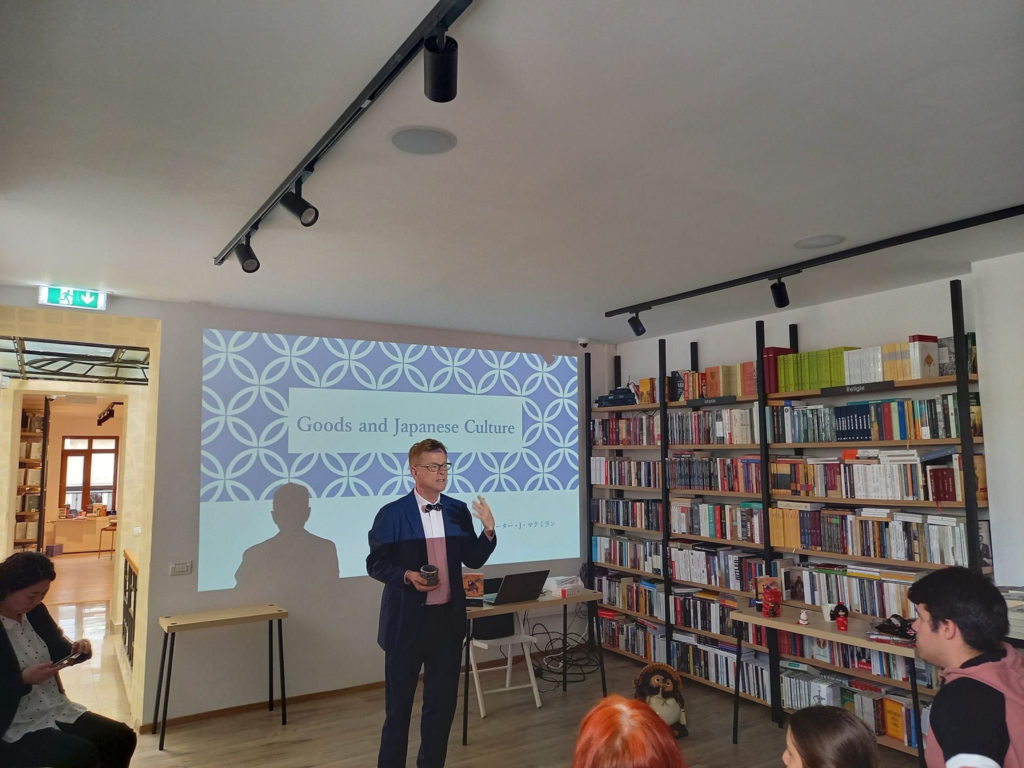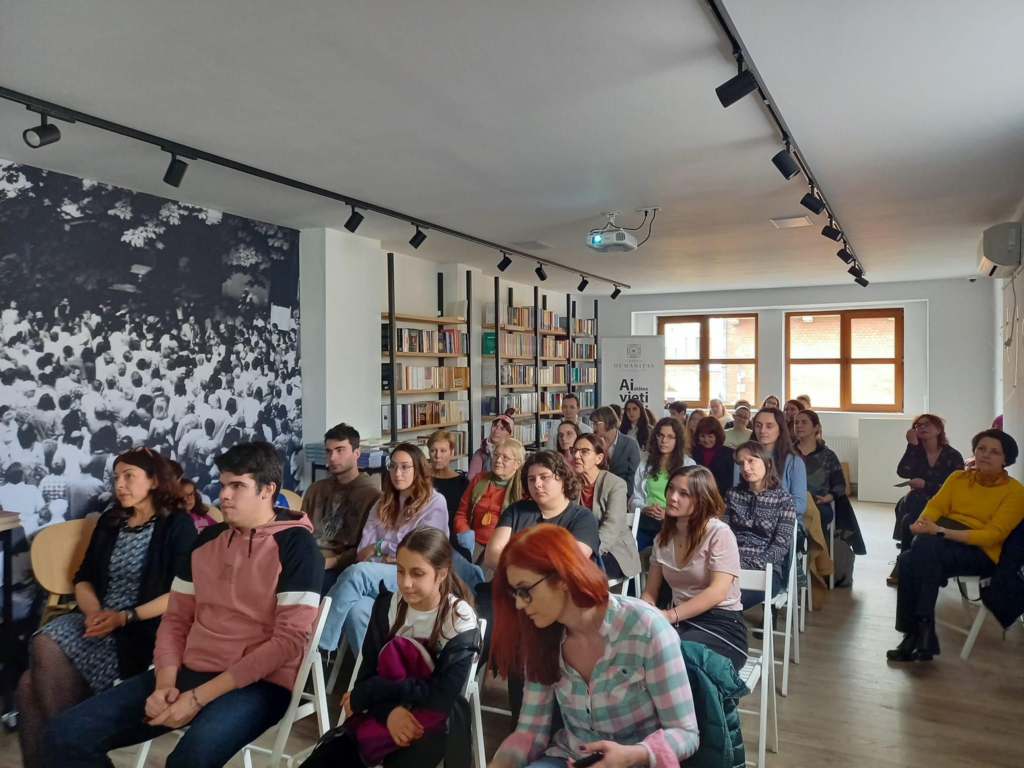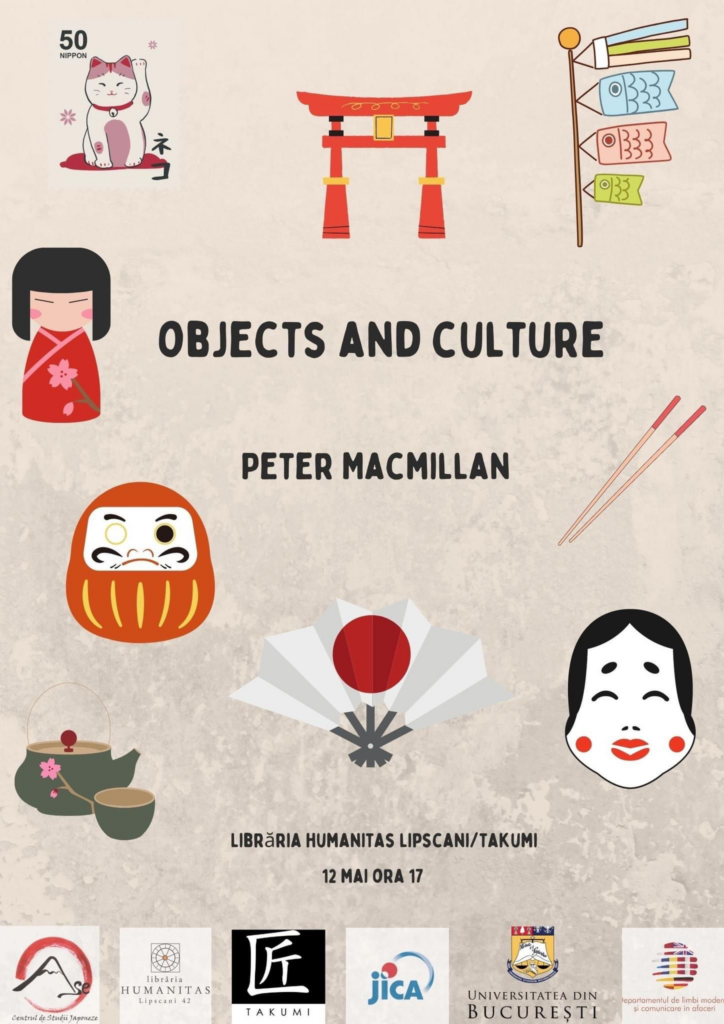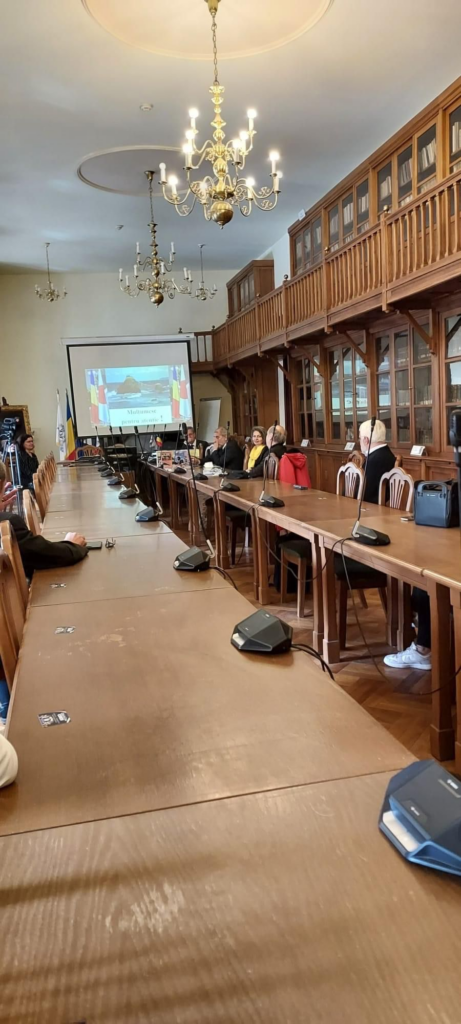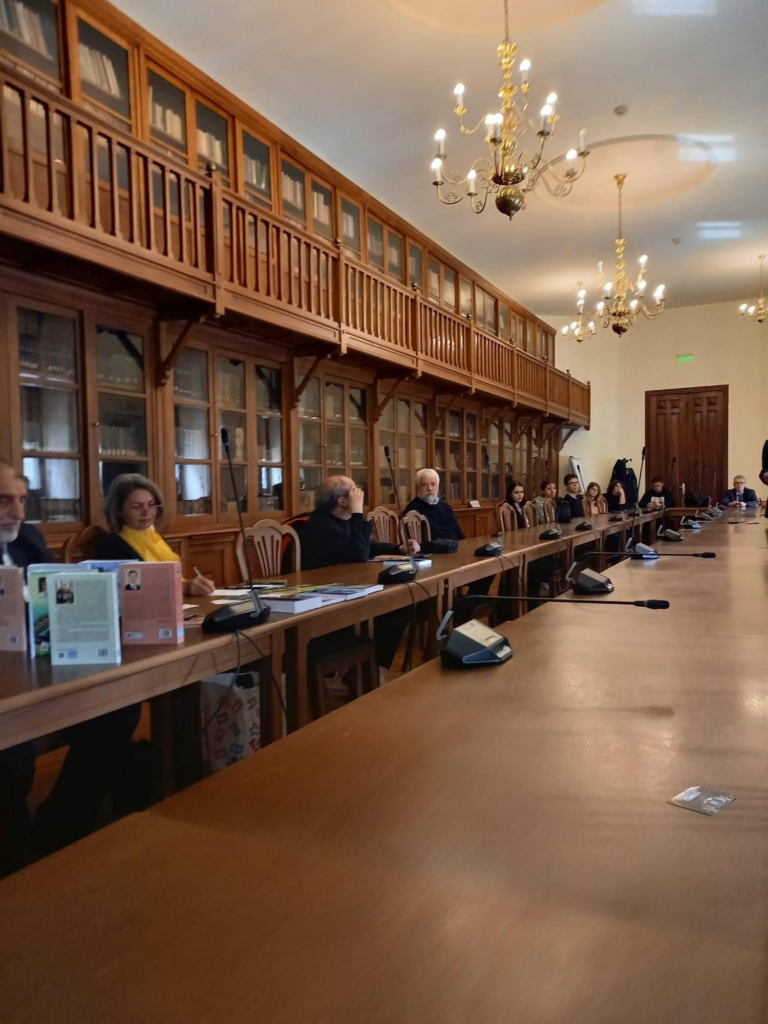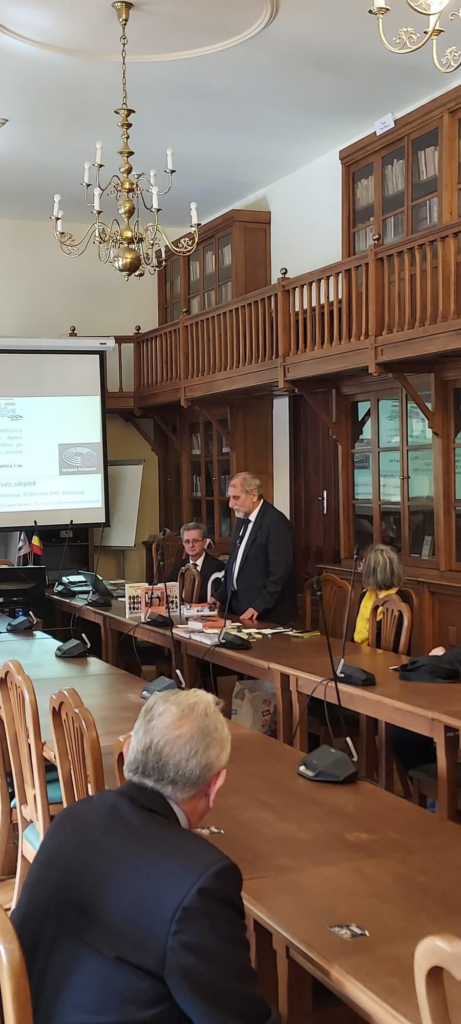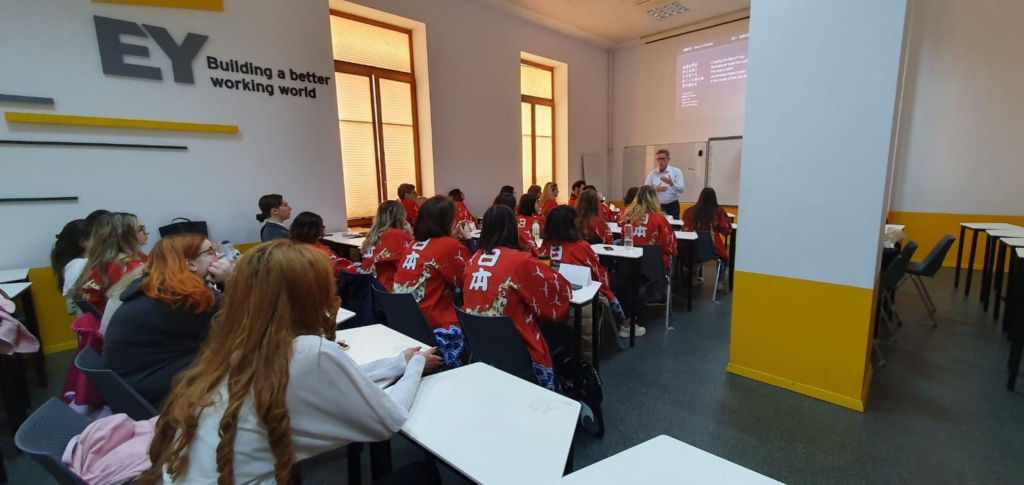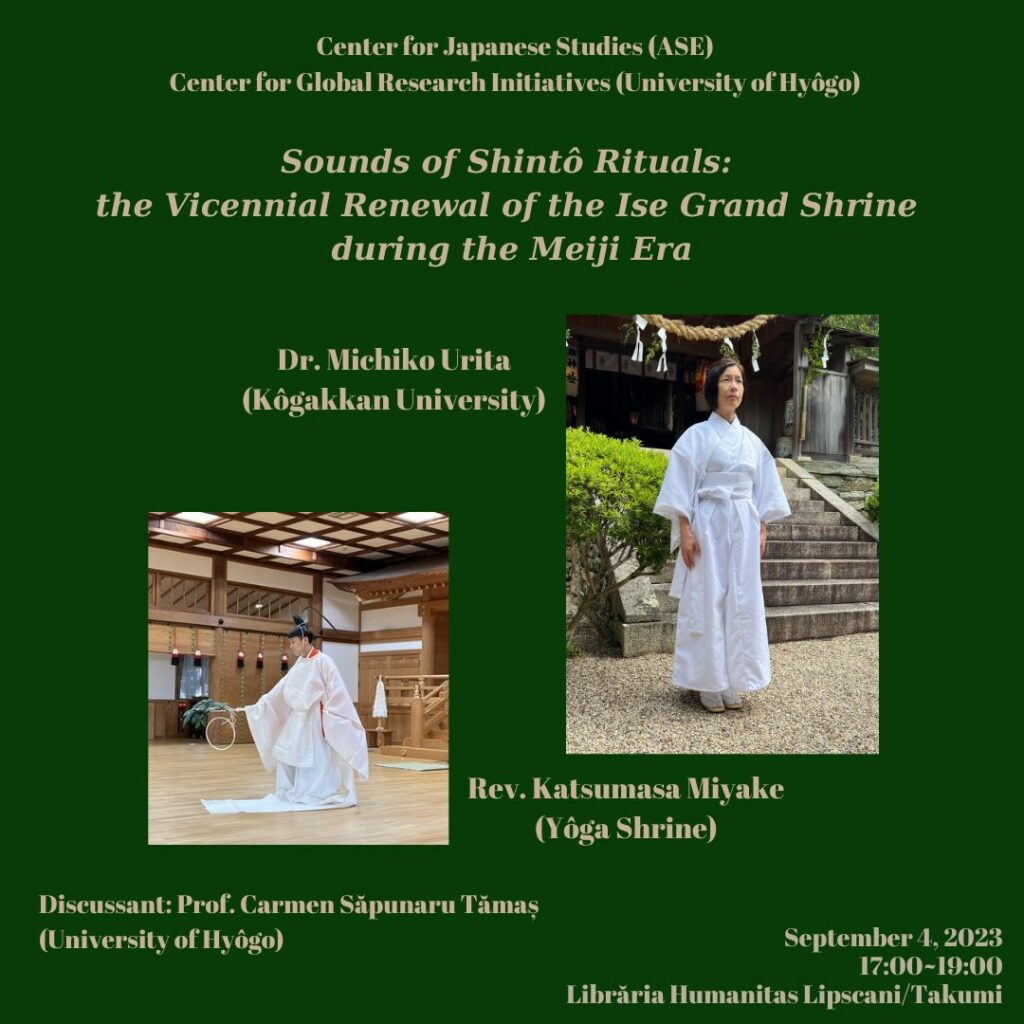
The Center for Japanese Studies at the Bucharest University of Economic Studies, in collaboration with the Center for Global Research Initiatives at the University of Hyōgo (Japan), is organizing the workshop:
Sounds of Shinto Rituals: the Vicennial Renewal of the Ise Grand Shrine during the Meiji Era,
to be hosted at Humanitas Lipscani/Takumi Bookstore.
The event will focus on the Ise Grand Shrine, the most important Shinto shrine in Japan, which has been ritually dismantled and rebuilt every twenty years for over 1,300 years. After a brief introduction to the main elements of Shintoism, workshop participants will learn about the ritual practices at the Ise Grand Shrine in the late 19th century, including sacred chants and dances from the Shinto tradition.
In the second part of the event, attendees will have the opportunity to learn and practice some ritual gestures under the guidance of the two Japanese specialists.
The main working language will be English, but explanations will also be available in Romanian if needed.
When: September 4, 2023
Where: Humanitas Lipscani 42 / Takumi Bookstore
Those who wish to participate are kindly asked to register by sending an email to japanesestudies.ase@gmail.com by August 31, 2023.
⸻
Dr. Michiko URITA is an associate professor at Kōgakkan University in Ise. She holds a Ph.D. in ethnomusicology from the University of Washington. Her research focuses on Shinto music and sacred music at the Ise Grand Shrine and the Imperial Court.
Mr. Katsumasa MIYAKE is the head priest of the Yōga Shinto shrine in Tokyo and a descendant of the Miyake hereditary line of Shinto priests from Okayama Prefecture. He holds the meikai rank, the second highest in the hierarchy of Shinto priests, awarded by the Association of Shinto Shrines in Japan.
